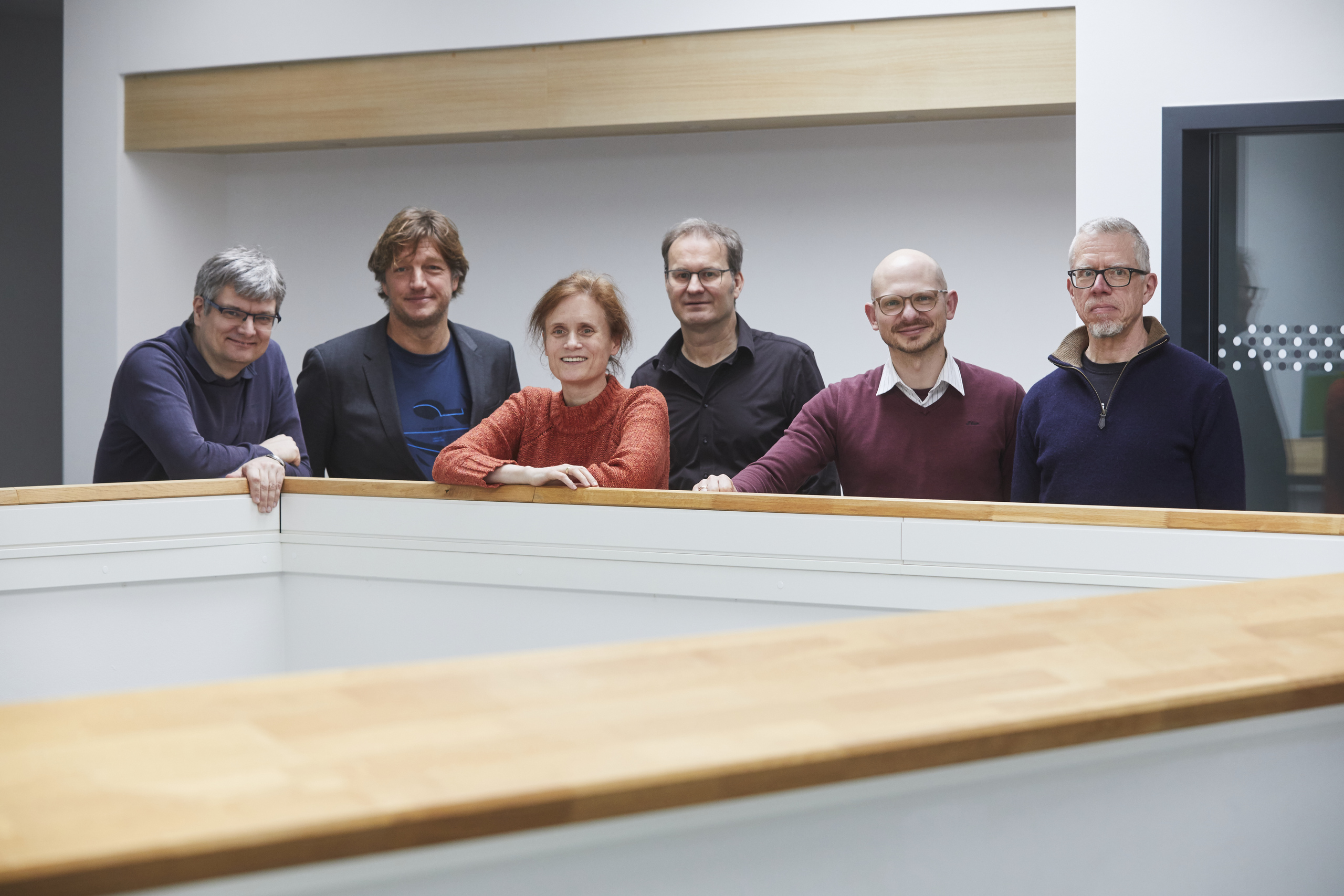Sustainable drug development

As part of its “Major Instrumentation Initiative”, the German Research Foundation (DFG) has awarded Darmstadt University of Applied Sciences funds of €1m for an initial period of three years for an interdisciplinary drug research project. The aim of the project is to explore more sustainable strategies for the discovery, development and production of new drugs.
The development of new drugs – starting with the identification of potential active ingredients through to the authorisation of the finished product – consumes enormous amounts of energy, water and medical products. To make drug research more resource-friendly, an h_da consortium led by biochemist Professor Heinz Neumann aims to analyse and improve all stages of the process. To this end, the German Research Foundation (DFG) is financing the purchase of an automated, high-resolution fluorescence microscope, which the team will use to develop new strategies for identifying active substances and to assess biomolecular condensates systematically. This latter work should contribute to a better understanding of cellular and thus also of disease processes.
In this way, the researchers hope to find new active ingredients that are more effective and to explore strategies for optimising production processes. They will examine pharmaceutical substances that have already been approved to see whether they might also be effective against other diseases and could therefore be authorised for other medical conditions. Drug candidates that were “rejected” in earlier clinical trials will be reevaluated and improved so that they can be used as appropriate; this would make several stages of the complex development process superfluous.
Taking part in the project, which is called “Time-resolved high throughput imaging of membraneless organelles to organ models”, are researchers from the Faculty of Chemical Engineering and Biotechnology and the Faculty of Mathematics and Natural Sciences at h_da, as well as two working groups from ETH Zurich. Together, the eight professors are contributing their combined expertise in drug development, chemical engineering and data analysis. “We are looking forward to working together as a team and hope that our research will help to place pharmaceutical research on a new, sustainable footing,” says project leader Professor Heinz Neumann. The other participants in the project are Professor Christina Graf, Professor Michael Becker, Professor Franz-Josef Meyer-Almes and Professor Frank Schael (Faculty of Chemical Engineering and Biotechnology), Professor Andreas Weinmann (Faculty of Mathematics and Natural Sciences), and Professor Yves Barral and Professor Karsten Weis (ETH Zurich).
Contact
Christina Janssen
Science Editor
University Communication
Tel.: +49.6151.533-60112
Email: christina.janssen@h-da.de
Translation: Sharon Oranski
